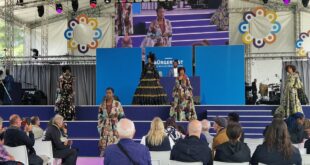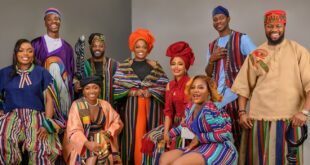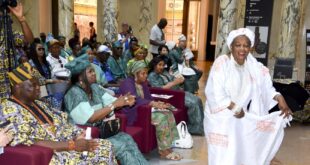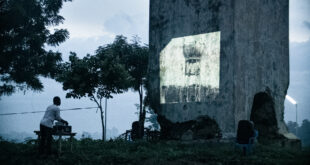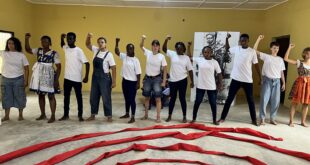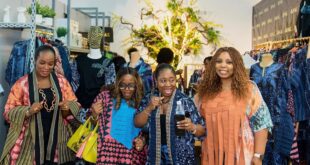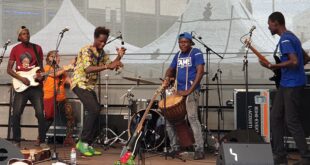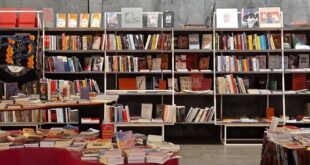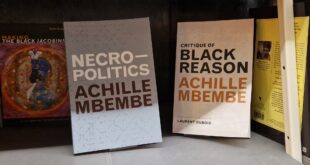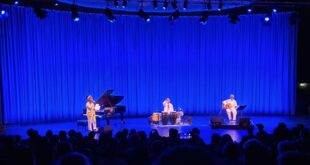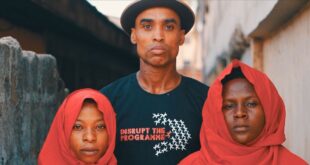The 68th Berlin International Film Festival – Berlinale – kicks off on 15 February in the German capital city.
The Berlinale is one of the biggest international film festivals alongside the Cannes and Toronto film festivals. Up to 400 films are shown every year, mostly international or European premieres, and the festival, the world’s second largest audiovisual event, sells more than 300,000 tickets and hosts more than 20,000 professional visitors from 128 countries.
Besides German or European cinema and Hollywood blockbusters, the festival’s programme this year also features productions from Africa, Asia and Latin America.
Berlinale’s 68th edition, which takes place 15–25 February, will also address the #MeToo movement and industry gender parity through side events.
“This year’s Berlinale competition reflects the world as it is,” festival director Dieter Kosslick said at a press conference on Tuesday in the German capital. “And the world is complex, many-layered and also exciting.”
Kosslick talked about the debates around sexual violence and gender discrimination in the global film industry — including in Germany — since the Harvey Weinstein scandal broke last October.
A total of 24 films will be screened as part of the festival’s Competition, 19 of which will be eligible for the Golden Bear, the top prize awarded for Best Film, and the Silver Bears awarded for individual contributions such as best directing, acting and screenplay.
Four German films are among the contenders: “Transit” by Christian Petzold about an exiled writer during the Nazi era; the relationship drama “In the Corridors” (“In den Gängen”) by Thomas Stuber; “3 Days in Quiberon” directed by Emily Atef on the life of actress Romy Schneider; and the family drama “My Brother is named Robert and is an Idiot” by Philip Grönig.
The Norwegian production “Utoya 22 July,” about the 2011 terror attack on the same-named island in which 77 people were killed by shooter Anders Behring Breivik, rounds off the competition list. Its screening will be a world premiere.
A total of around 400 films, including 11 from Africa, are set to run at the 11-day festival.
Among Africans films to be screened in Berlin are Afrique, La Pensee En Mouvement Part I & II by Jean-Pierre Bekolo; Besida by Chuko Esiri; Kinshasa Makambo – On The Other Side Of Freedom by Dieudo Hamadi; and Maki’la by Machérie Ekwa Bahango.
The Berlinale Africa Hub, a communication and networking platform for the African film industry, will hold its second edition from 16-21 February.
Thanks to a very successful 2017 event, the Hub will again offer a focused range of events such as panels, presentations and talks and allow distributors, buyers, filmmakers and other professionals of the creative industries from or with a focus on sub-Saharan Africa to come together to meet and to network.
The Berlinale Africa Hub is an initiative of the European Film Market (EFM), supported by Germany’s Federal Foreign Office and in co-operation with the World Cinema Fund, Berlinale Talents (including its sister programme Talents Durban) and the Berlinale Co-Production Market.
Femi Awoniyi
 THE AFRICAN COURIER. Reporting Africa and its Diaspora! The African Courier is an international magazine published in Germany to report on Africa and the Diaspora African experience. The first issue of the bimonthly magazine appeared on the newsstands on 15 February 1998. The African Courier is a communication forum for European-African political, economic and cultural exchanges, and a voice for Africa in Europe.
THE AFRICAN COURIER. Reporting Africa and its Diaspora! The African Courier is an international magazine published in Germany to report on Africa and the Diaspora African experience. The first issue of the bimonthly magazine appeared on the newsstands on 15 February 1998. The African Courier is a communication forum for European-African political, economic and cultural exchanges, and a voice for Africa in Europe.


